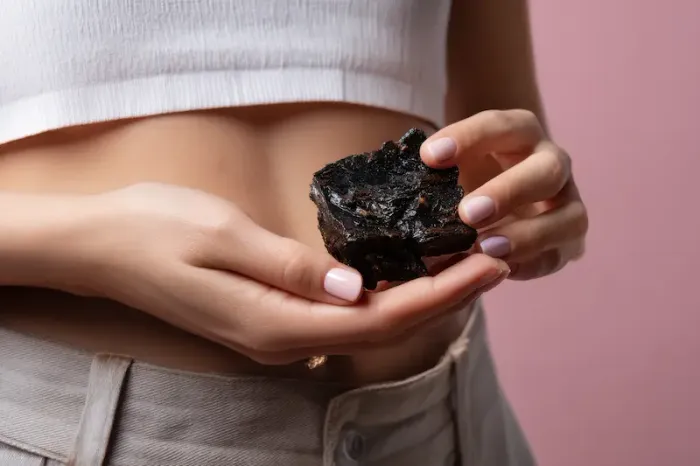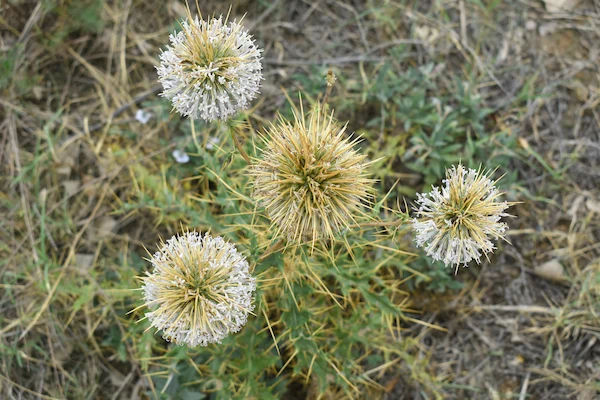Shilajit Benefits For Women Top 9 Health Advantages
Shilajit benefits for women: 9 potential perks, how this energy supplement may help, safety tips, dosage, and FAQs from trusted health sources.


Introduction
If you’ve heard friends rave about shilajit or seen it marketed as an energy supplement, you might be wondering what it is and whether it’s helpful for women. Shilajit is a mineral-rich resin used in traditional medicine, and interest has grown as people look for natural options to support energy, resilience, and healthy aging. This guide breaks down what we know so far- what research suggests, how to use it safely, and what to consider before you try it.
A quick note on evidence: Human research on shilajit is still limited. Many claims come from traditional use, lab studies, or small trials. Below, you’ll find potential advantages that may be relevant to shilajit women are curious about, plus clear safety guidance and reputable sources to help you make an informed choice.
What is Shilajit?
Shilajit is a sticky, tar-like substance that seeps from rocks in mountainous regions (commonly the Himalayas). It forms over long periods from decomposed plant material and minerals. It contains fulvic acids and other humic substances, along with trace minerals.
Key points
Here’s a quick look at the essentials:
- It’s sold as resin, powder, capsules, or liquid drops.
- Quality varies widely; contamination (including heavy metals) is a concern with poorly purified products.
- In the U.S., supplements aren’t pre-approved by the FDA for safety or effectiveness, so choosing a high-quality brand is crucial.
Shilajit Benefits for Women: Top 9 Potential Advantages
The following potential benefits come from a mix of traditional use, early research, and small human studies. They are not medical claims and should not replace care from your clinician.
1) May support steady energy and reduce fatigue
Why it matters: Many women juggle work, family, and other demands that strain energy levels. Early research suggests shilajit may support cellular energy processes (mitochondrial function) and help reduce perceived fatigue in some people. This is one reason it’s marketed as an energy supplement. Evidence in women specifically is limited, and results can vary.
What to know:
- Consider it a possible complement to - never a substitute for - addressing root causes of low energy like sleep, stress, nutrition, thyroid issues, or iron deficiency.
- If fatigue is persistent, get evaluated. Iron deficiency and anaemia are common worldwide in women of reproductive age.
2) May help exercise performance and recovery
Some small studies suggest shilajit could support exercise capacity, muscle recovery, and reduced fatigue with training. If you’re active or returning to fitness, it may be one more tool to consider. However, larger, high-quality trials (especially in women) are still needed.
Tips:
- Pair with proven basics: progressive training, adequate protein, hydration, and sleep.
3) Antioxidant and anti-inflammatory support
Shilajit’s fulvic acids have antioxidant properties in lab studies. Antioxidants help neutralise free radicals, which can contribute to cell stress over time. While this sounds promising for healthy aging, clinical evidence in humans remains limited.
What to know:
- Your foundation should still be antioxidant-rich foods (fruits, vegetables, nuts, legumes, whole grains), regular movement, and stress management.
4) Cognitive support (early-stage evidence)
Laboratory research suggests fulvic acid may help inhibit tau protein aggregation, a process linked to certain neurodegenerative conditions. This is intriguing but early. There isn’t strong clinical evidence that shilajit improves memory or focus in healthy adults. If you’re considering shilajit for brain health, set realistic expectations and focus on proven lifestyle habits first (sleep, physical activity, balanced diet, social connection).
5) Support at altitude and during travel
Shilajit has a long history of traditional use for high-altitude adaptation. Limited evidence suggests it may support oxygen use and reduce fatigue in low-oxygen settings. If you’re travelling to higher elevations, talk with your clinician about evidence-based altitude strategies first; consider shilajit as an optional add-on, not a primary prevention or treatment.
6) Stress and resilience support
Traditionally, shilajit is described as helping the body adapt to stress. Some people report feeling more resilient with use. Modern clinical data are limited, so think of it as a potential supportive tool alongside core strategies like sleep, mindfulness, physical activity, and social support.
7) Nutrient absorption and mineral transport (theoretical/early data)
Fulvic acids may help transport minerals at the cellular level. This has led to claims about improved nutrient absorption, but robust human trials are lacking. If you have nutrient deficiencies (like iron), work with your clinician on targeted treatment. Shilajit is not a replacement for needed supplements or medications.
8) Joint and muscle comfort
Because shilajit components have antioxidant and anti-inflammatory effects in lab settings, some people use it for general joint and muscle comfort. Human evidence is preliminary. For joint issues, combine with proven approaches (activity modification, strength training, healthy weight, and clinician-guided care).
9) Sexual wellness and vitality
In men, some small studies have looked at testosterone and fertility. In women, we don’t have strong research on hormones, libido, or fertility outcomes with shilajit. Some users report improved vitality, but evidence is limited. If you’re exploring shilajit for sexual wellness, discuss it with your clinician, especially if you have hormone-sensitive conditions or are trying to conceive.
Consult Top Specialists Here
Safety, Side Effects, and Who Should Avoid Shilajit?
Let’s go over the important safety details you should know:
Potential side effects
- Digestive upset (nausea, diarrhoea, stomach discomfort)
- Dizziness or headache
- Possible allergic reaction
Important cautions
- Heavy metal contamination: Only choose purified products with third-party testing.
- Pregnancy & breastfeeding: Avoid.
- Chronic conditions: Consult your clinician.
- Medications: Use caution if you take medicines for blood pressure, diabetes, thyroid, blood thinners, or iron supplements.
- Children and teens: Not recommended.
How to Choose and Use Shilajit Safely?
Here’s what to look for when selecting shilajit.
- Third-party testing (USP, NSF, ConsumerLab, COA)
- Purified shilajit only
- Clear standardisation and batch test results
Typical amounts used
- Research often uses 250–500 mg per day of purified, standardised shilajit extract.
- Take with water, tea, or a snack if needed.
- Some people use cycle breaks, though evidence is limited.
Smart steps before you start
- Check with your clinician, especially for fatigue, medications, or medical conditions.
- Rule out common causes of fatigue (iron deficiency, thyroid concerns).
Who Might Benefit vs. When to Prioritise Other Steps
Shilajit might be worth discussing with your clinician if:
- You want an energy supplement alongside healthy lifestyle habits.
- You’re active and curious about possible small improvements in training or recovery.
Consider other steps first if:
Here’s when shilajit should not be your first step:
- You have symptoms of anaemia or undiagnosed fatigue.
- You’re pregnant, breastfeeding, or trying to conceive.
- Product purity cannot be verified.
Consult Top Specialists Here
Consult Top Specialists Here

Dr. Vivek D
General Physician
4 Years • MBBS
Bengaluru
PRESTIGE SHANTHINIKETAN - SOCIETY CLINIC, Bengaluru

Dr Syed Mateen Pasha
General Physician
2 Years • MBBS
Bengaluru
PRESTIGE SHANTHINIKETAN - SOCIETY CLINIC, Bengaluru

Dr. Harshendra Jaiswal
General Physician/ Internal Medicine Specialist
12 Years • MBBS , MD (General medicine)
Kolkata
108 DHANA DHANVANTARI Clinic, Kolkata
(25+ Patients)

Dr. Syed Ismail Ali
General Practitioner
7 Years • MBBS
Hyderabad
Apollo 24|7 Clinic, Hyderabad
Dr. Ramya Reddy Jonnala
General Physician/ Internal Medicine Specialist
2 Years • MBBS
Secunderabad
KK Home Clinic, Secunderabad
Consult Top Specialists Here

Dr. Vivek D
General Physician
4 Years • MBBS
Bengaluru
PRESTIGE SHANTHINIKETAN - SOCIETY CLINIC, Bengaluru

Dr Syed Mateen Pasha
General Physician
2 Years • MBBS
Bengaluru
PRESTIGE SHANTHINIKETAN - SOCIETY CLINIC, Bengaluru

Dr. Harshendra Jaiswal
General Physician/ Internal Medicine Specialist
12 Years • MBBS , MD (General medicine)
Kolkata
108 DHANA DHANVANTARI Clinic, Kolkata
(25+ Patients)

Dr. Syed Ismail Ali
General Practitioner
7 Years • MBBS
Hyderabad
Apollo 24|7 Clinic, Hyderabad
Dr. Ramya Reddy Jonnala
General Physician/ Internal Medicine Specialist
2 Years • MBBS
Secunderabad
KK Home Clinic, Secunderabad
More articles from General Medical Consultation
Frequently Asked Questions
1) Is shilajit safe for women to take daily?
Possibly for some, but safety data in women are limited. If you choose to use it, select a purified, third-party-tested product and start with a low dose (e.g., 250 mg/day). Avoid use if pregnant, breastfeeding, or if you have significant medical conditions without talking to your clinician.
2) Can shilajit help with low energy and fatigue?
It may help some people as part of a broader plan (sleep, stress care, nutrition). Because fatigue can signal medical issues like iron deficiency or thyroid problems, get evaluated if it’s ongoing or severe. Shilajit is not a replacement for medical care.
3) Does shilajit affect women’s hormones, periods, or fertility?
High-quality research in women is lacking. There’s no strong evidence that shilajit reliably changes menstrual cycles or improves fertility. If you’re trying to conceive, discuss any supplement use with your clinician first.
4) Can I take shilajit during pregnancy or while breastfeeding?
No. There isn’t enough safety data. Stick with evidence-based prenatal care and supplements recommended by your healthcare provider.
5) Can shilajit interact with medications like thyroid, diabetes, or blood thinners?
Possible interactions exist. Shilajit could potentially affect blood sugar or absorption of certain medicines. To be safe, speak with your clinician or pharmacist and separate dosing from other meds by a few hours.




